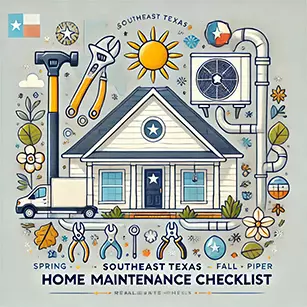
Top 10 Benefits of Using a Mortgage Broker Over a Bank: A Comprehensive Guide to Home Financing
Purchasing a new home can be an exciting, yet overwhelming experience. If you're in the market for a new home, you'll need to consider how you're going to finance the purchase. When it comes to obtaining a mortgage, you have two options: using a mortgage broker or going to a bank. While both optio

How Interest Rates Work
As a prospective homebuyer, one of the most important things you need to consider when purchasing a home is the interest rate. Interest rates can have a significant impact on your monthly mortgage payment, as well as the overall cost of your home. In this blog, we will take a closer look at how inte
Categories
Recent Posts

Moving Day Prep Guide: A Fun, Friendly Checklist for First-Time Buyers!

Homeowner Planning Guide: Your First-Time Homebuyer Game Plan

Southeast Texas Home Maintenance Checklist

Is It Time to Pack Up? Knowing When to Make Your Move

Unveiling the Charm of North Houston: An Enriched Guide to Suburban Bliss

Houston Real Estate Trends: Market Stabilizes with Slowest Sales Decline in Over a Year - August 2023 Overview

Doxes Realty Privacy Policy

Unlock the Door to Your Dream Home This Incredible Limited-Time Offer

Top 10 Benefits of Using a Mortgage Broker Over a Bank: A Comprehensive Guide to Home Financing

The Houston housing market is like a rock band on a comeback tour!




